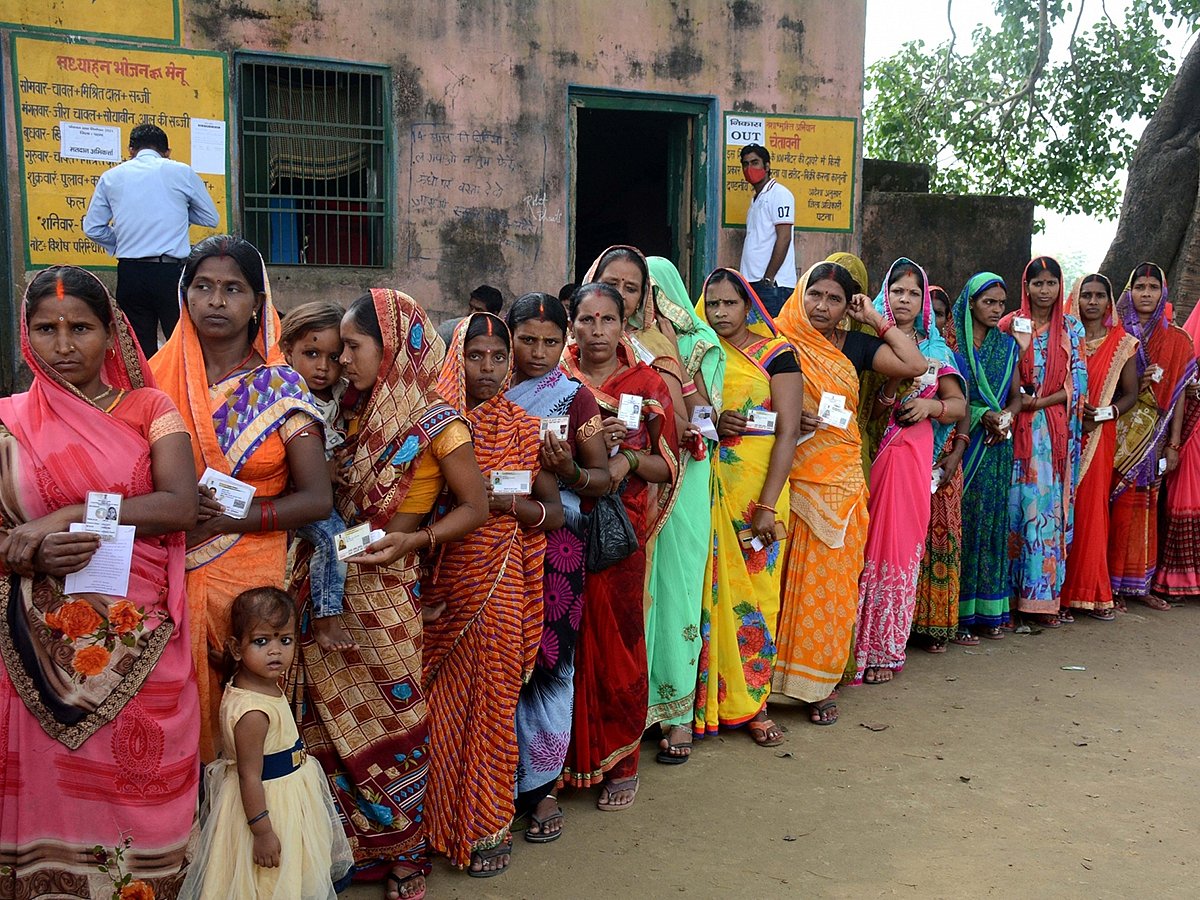Bihar’s women voters hold the key — but parties still don’t get it
Women are turning out in record numbers, but are sidelined from genuine representation

As Bihar prepares for the first of the two-phase election this week, all eyes are on the one group that will ultimately decide who comes to power - women. All the major players from Nitish Kumar to Tejashwi Yadav to the BJP have been aggressively wooing women voters in the run-up to the elections. Data from the Election Commission shows that in the 2020 Assembly elections, women outvoted men in 167 of the 243 constituencies spread across the state. The National Democratic Alliance (NDA) won most of these. The voter turnout for women was also higher at 60 percent compared to 54 percent for men. This increase in women voters has been happening steadily in Bihar since the early 2005.
Why does this matter so much? First, sheer numbers: when women turn out in greater proportion, they shift the balance in constituencies where margins are thin and alliances fluid. Second, the issues women prioritise — such as safe water, health, sanitation, livelihood support and local governance — often differ from the traditional agenda of caste - and alliance-based politics. Studies in Bihar show women’s participation is rising even if their involvement in party mobilisation or candidacy remains limited. Because of this, parties that ignore or trivialise women’s vote risk being out-of-sync with the evolving electorate.
Pro-women sops
That is why Nitish Kumar is banking heavily on a series of pro-women sops to see his alliance with the BJP through, just as it has benefitted him in the past. Earlier he had given them free bicycles, prohibition and 50 percent reservations in panchayats. Now there are more sops. That includes Rs10,000 seed money to hundreds of thousands of women to start their own businesses. Those who succeed will get an additional assistance of Rs 200,000. He has also announced an increase in monthly social security payouts for widows to Rs1,400 from Rs 400; 50 per cent quotas in local administrative and civic bodies and 35 per cent reservations for women in government jobs.
The Rashtriya Janata Dal too has promised a series of sops for women, including Rs 30,000 a year to their accounts.
But in the battle for the women vote, what is lost are the women themselves. Despite a much higher voter turnout, women don’t get as many tickets to contest from political parties. This time, the NDA has fielded only 34 women and the opposition Mahagathbandan only 30.
Rhetorical prominence
Political parties often give women’s issues only rhetorical prominence rather than structural action. We see promises of “women-centric” schemes during campaigns, but far fewer commitments to systemic change in representation, accountability or targeted policy-delivery.
The problem is that parties are still heavily reliant on caste alliances, dynastic structures and vote-bank arithmetic; women as a class-based or gender-based constituency have not yet supplanted or re-calibrated those configurations. Also, low women’s representation in leadership means their priorities are filtered through male-dominated party hierarchies. Even if women vote in larger numbers, their agenda often remains peripheral.
What would genuine recognition of women voters look like for parties in Bihar? It would mean: devising and implementing policy platforms built on issues women care about, beyond periodic welfare hand-outs; promoting women candidates at grass-roots and higher levels so decision-making reflects voter diversity; strengthening local governance mechanisms where women are empowered to hold authorities to account.
Women in Bihar are no longer the silent secondary electorate — they are increasingly the “swing” electorate. Political parties that continue to pander superficially risk being out-paced by the changing dynamics of participation. For Bihar’s democracy to deepen, recognising women’s vote must go beyond campaign rhetoric to structural and accountable change. Only then will the promise of a fully inclusive electorate be fulfilled.
Sign up for the Daily Briefing
Get the latest news and updates straight to your inbox
Network Links
GN StoreDownload our app
© Al Nisr Publishing LLC 2026. All rights reserved.
